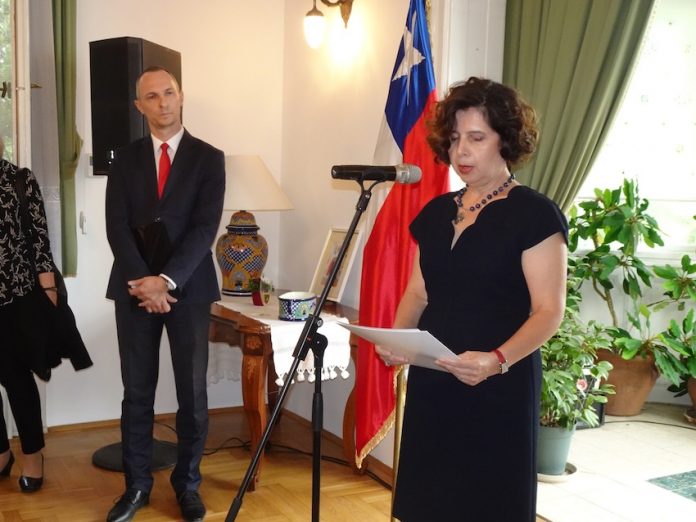Edited by Anna Popper
The Independence movement of Chile traces its origins to 18 September 1810, when a national junta was established to govern the country in the name of the deposed King of Spain. Although the formal Declaration of Independence was issued in 1818, the struggle did not end until 1826 with the annexation of Chiloé Island to the new republic. Located off the southern coast of Chile, Chiloé was the last Spanish stronghold to join the nation, thus marking the final consolidation of Chile’s independence.
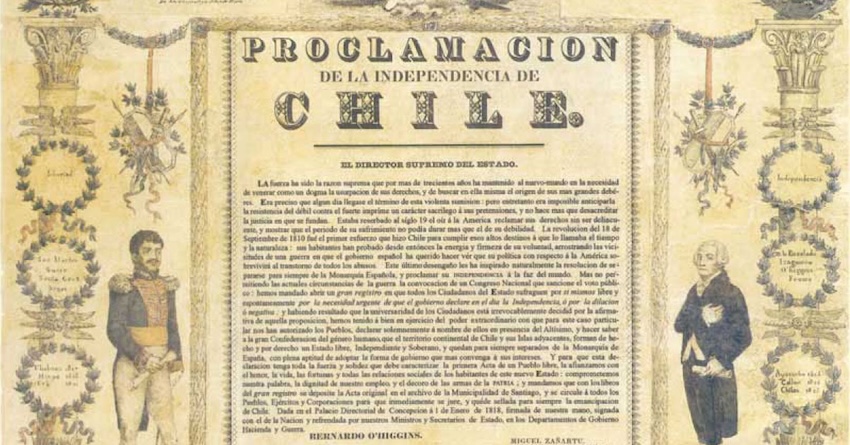
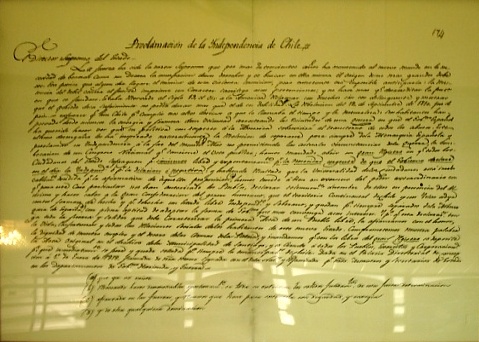
Commemorating the 215th anniversary of the beginning of this historic movement, the Embassy of Chile in Hungary hosted a reception at the Ambassador’s Residence in Budapest. The event gathered Hungarian officials, members of the diplomatic corps – including ambassadors from Latin American countries – representatives of the economic and cultural cercles, Chilean nationals, and friends of Chile.
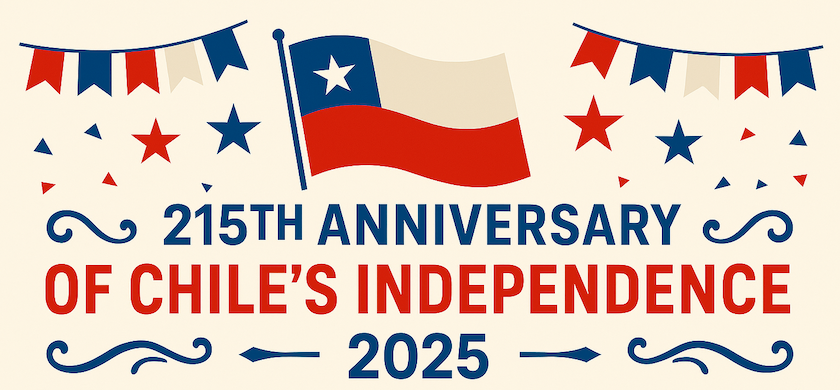
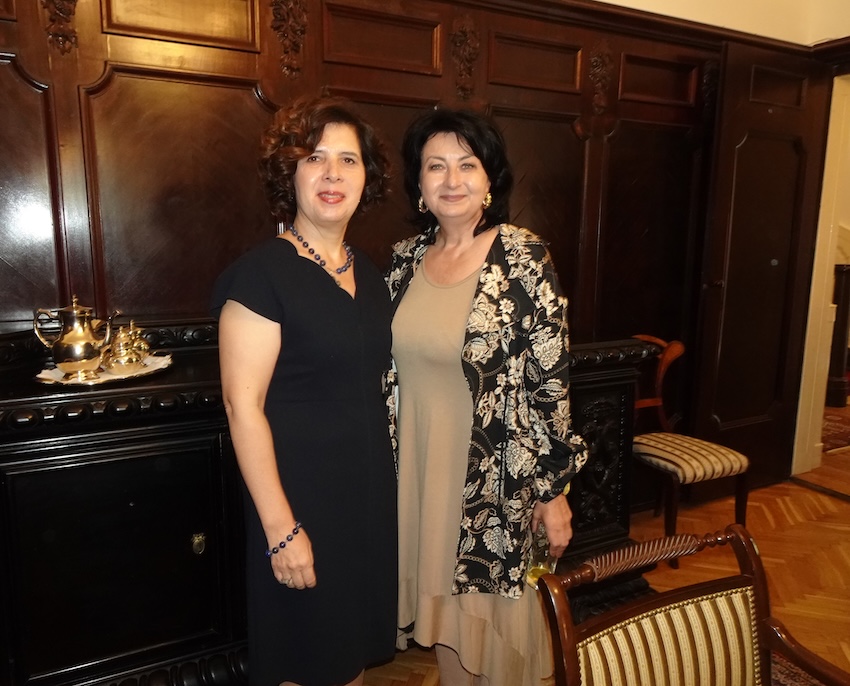
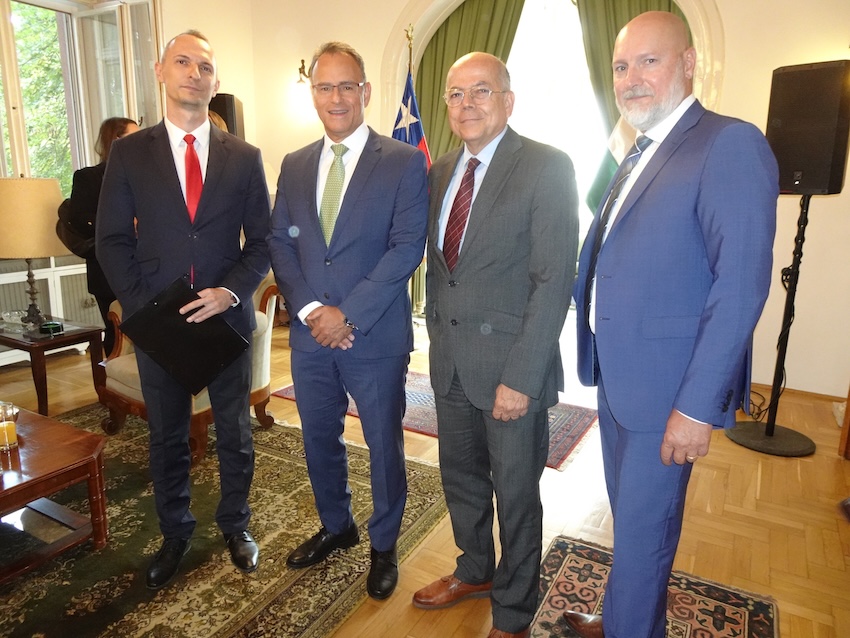
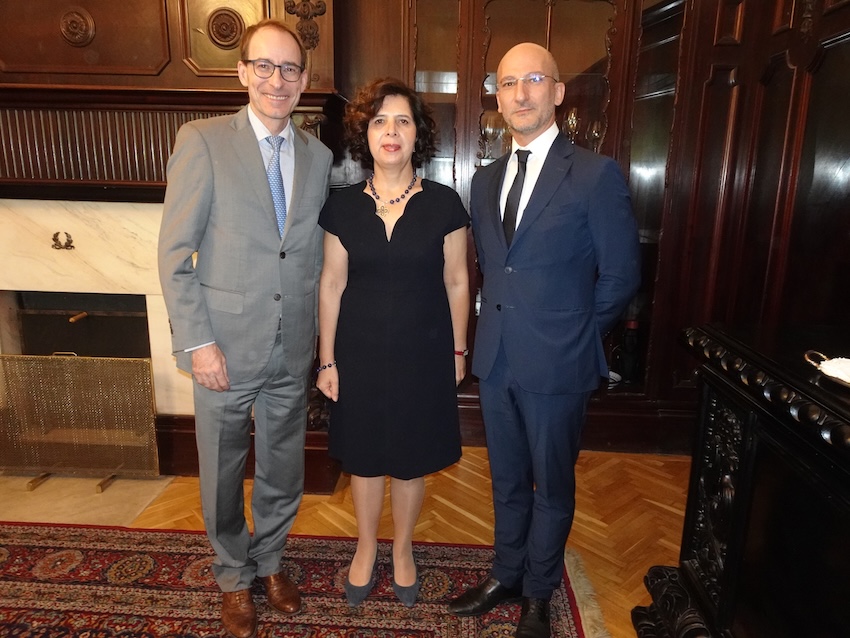
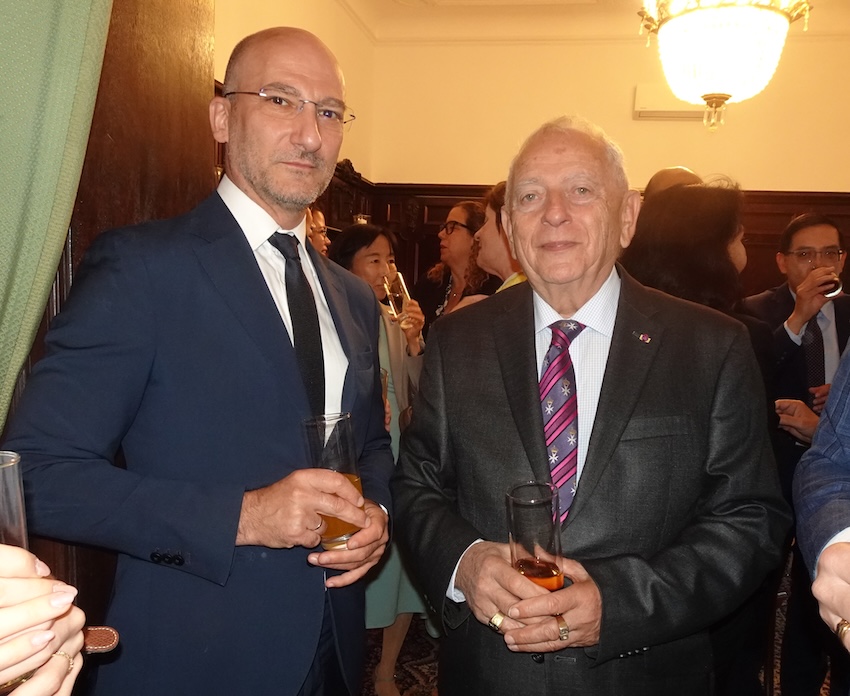
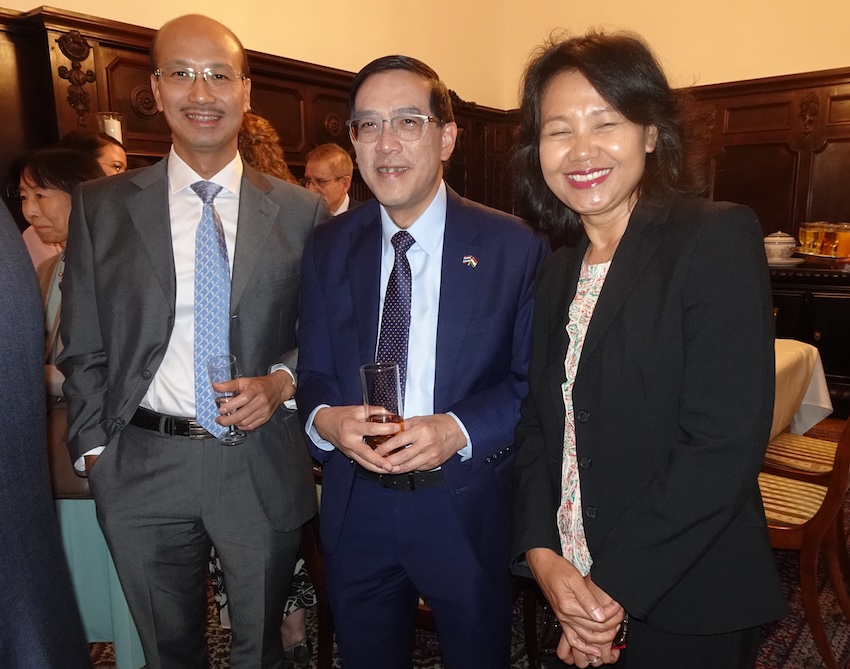
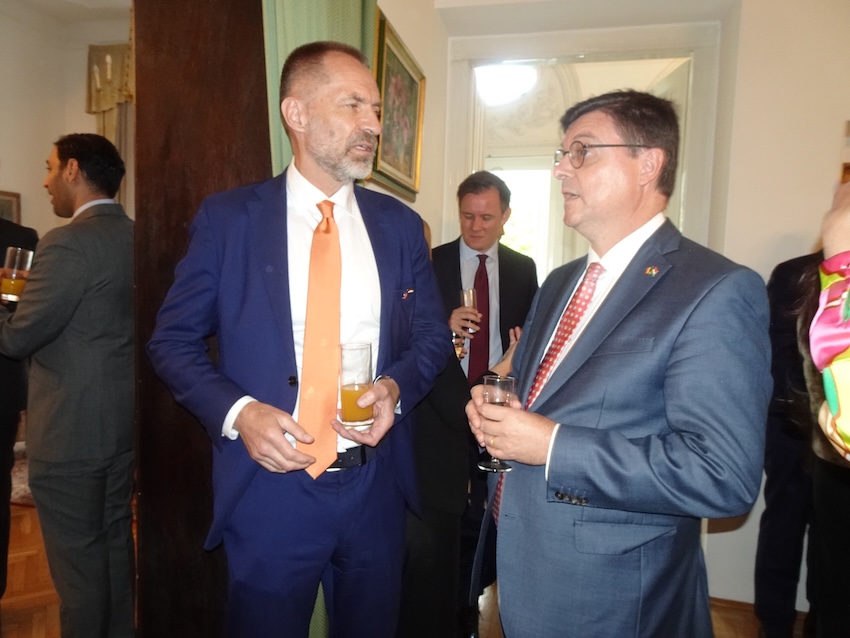
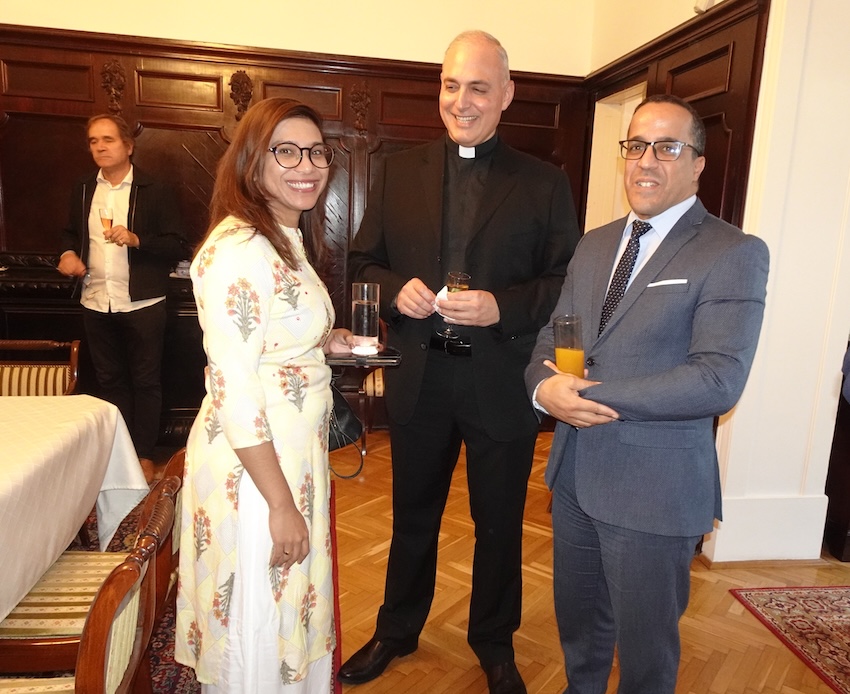
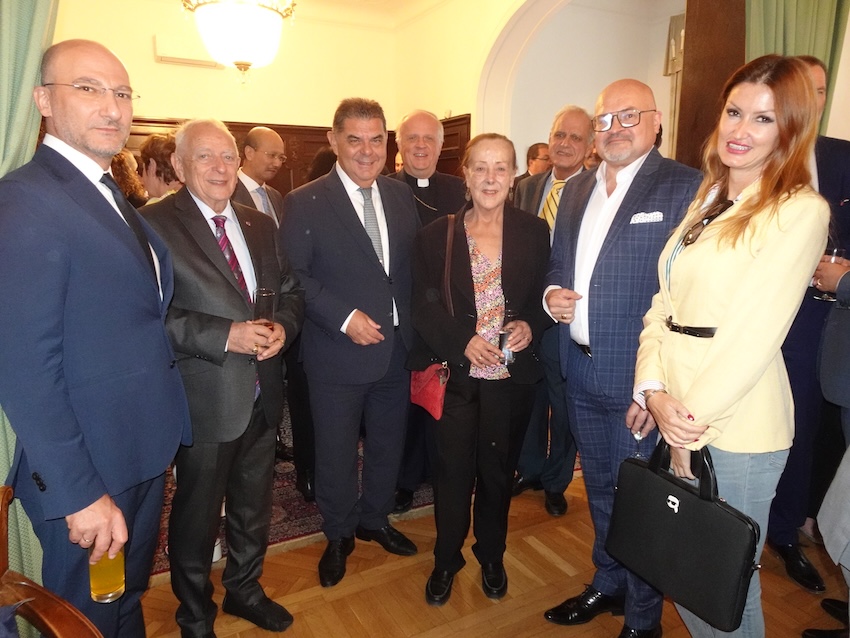
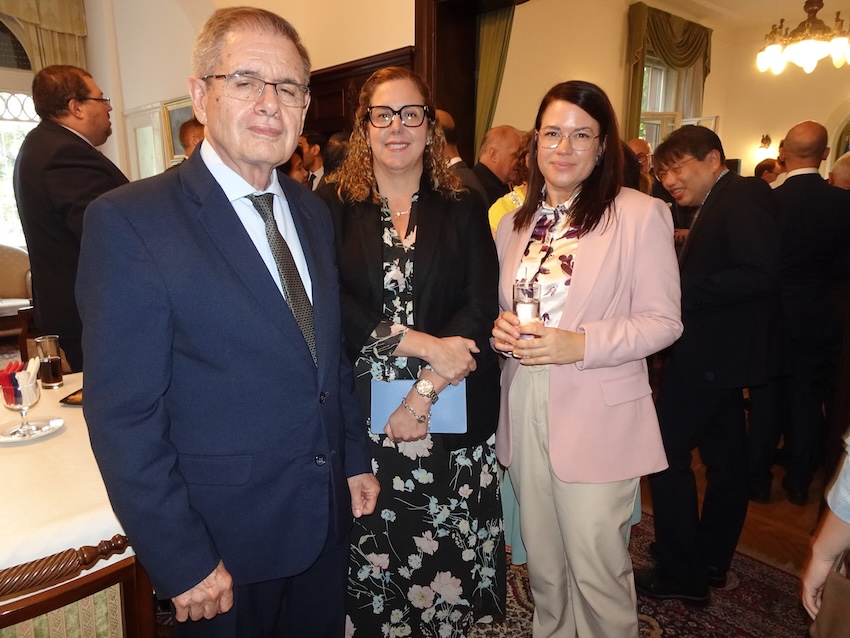
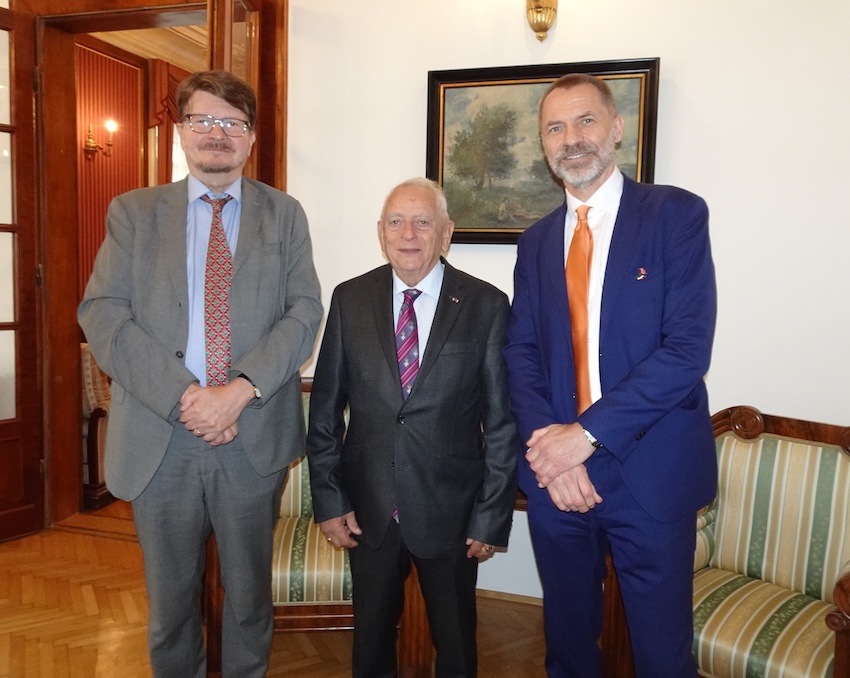
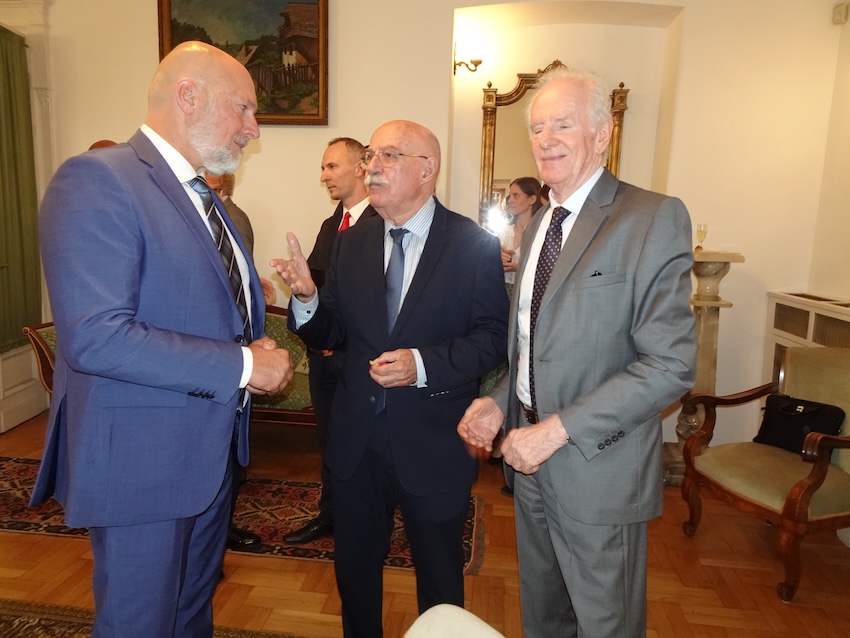
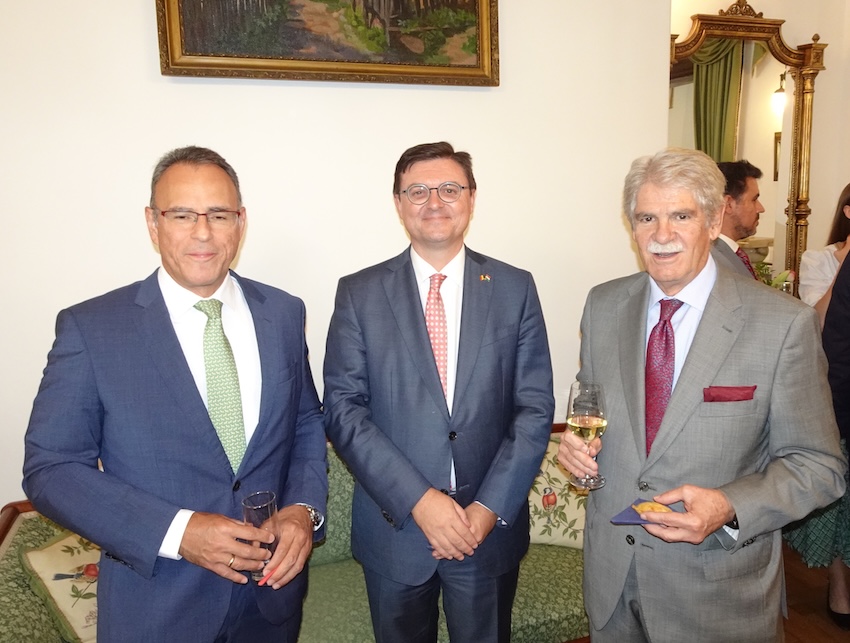
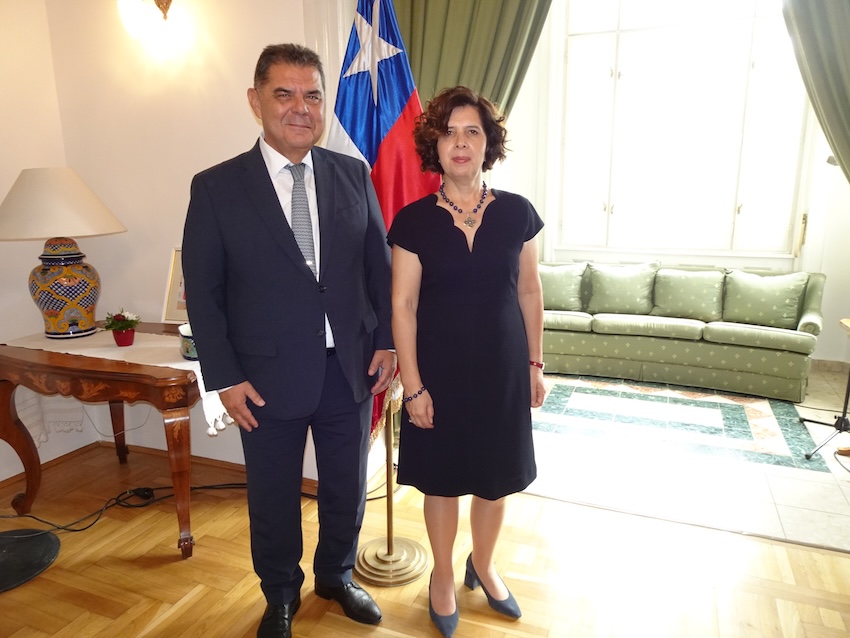
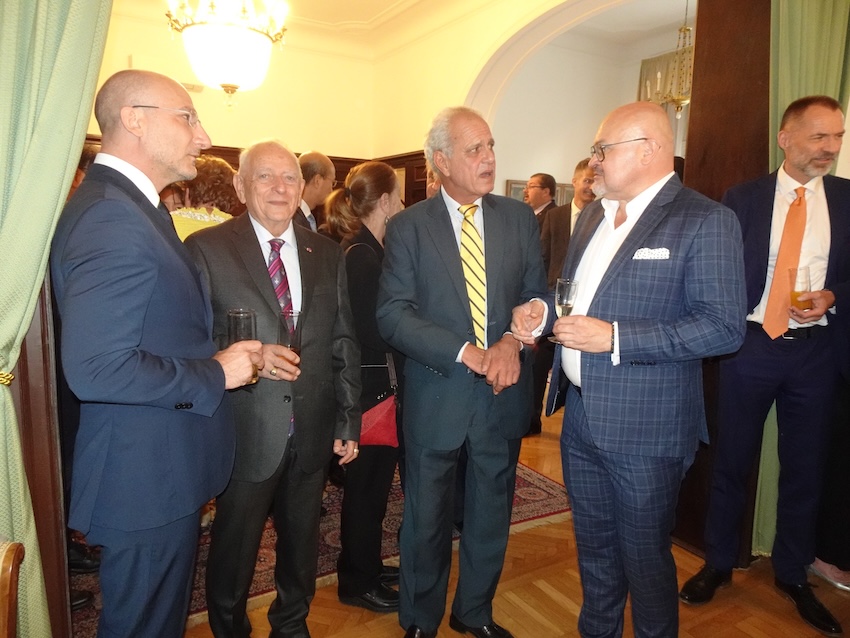
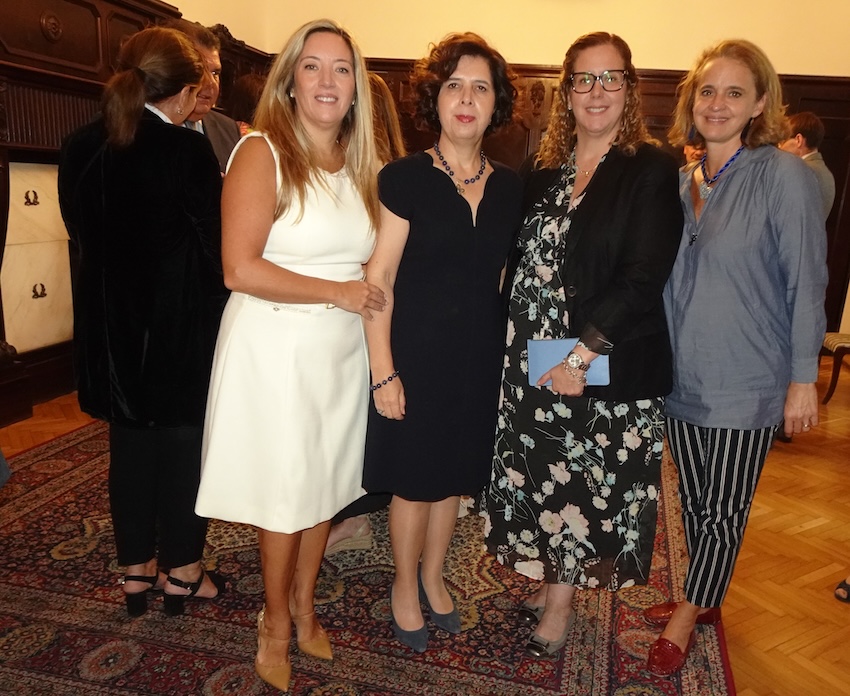
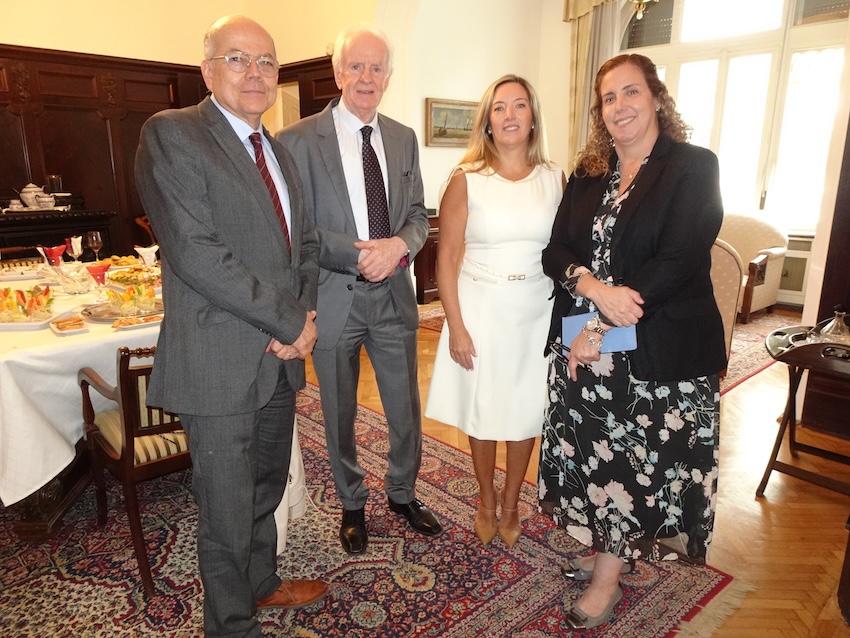
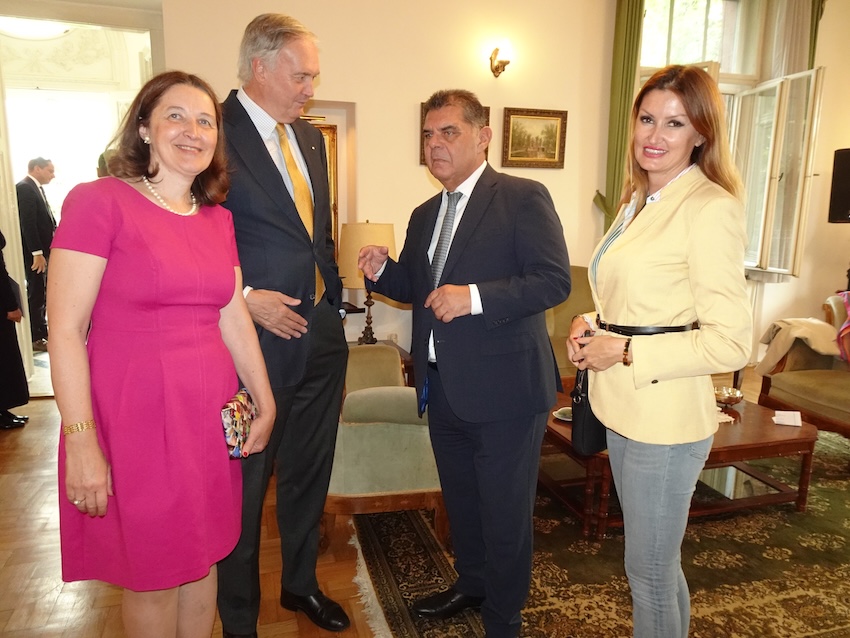
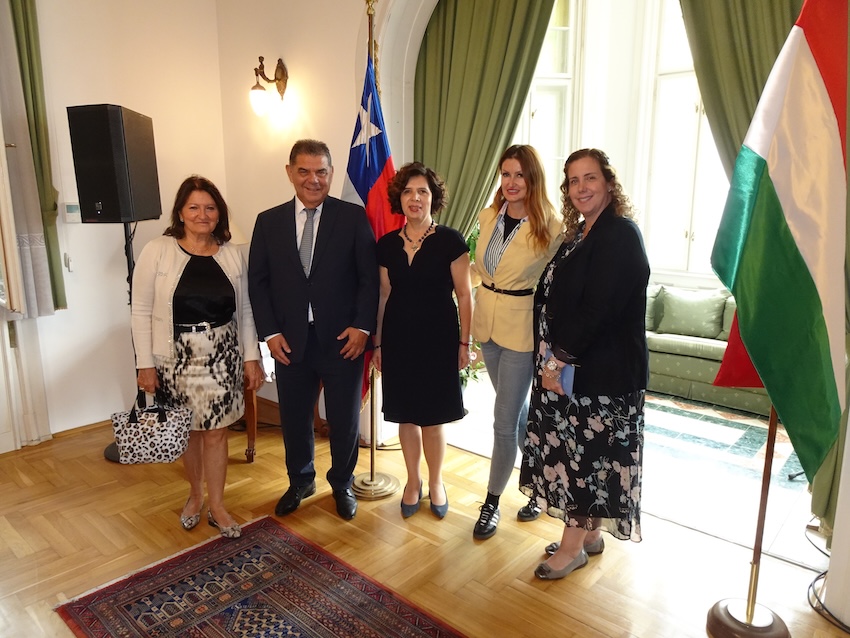
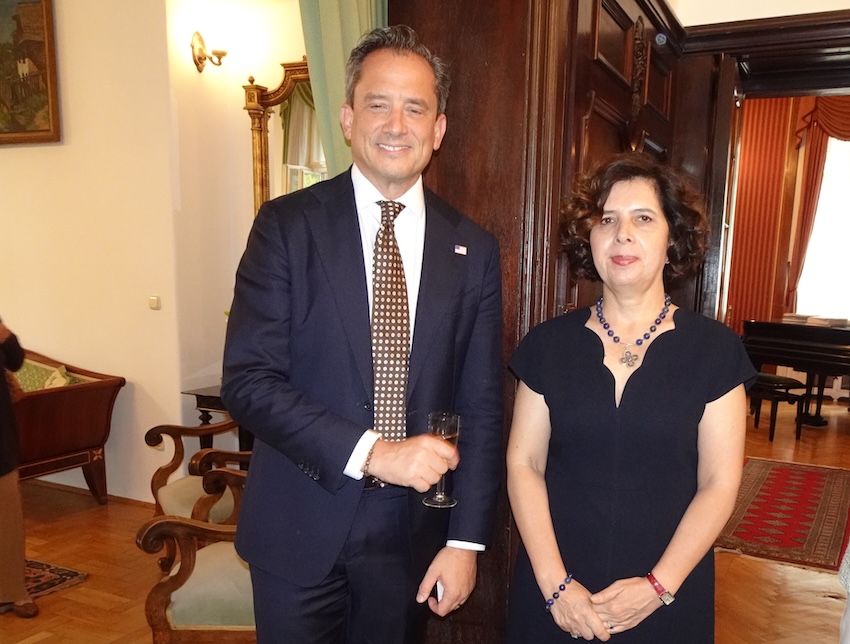
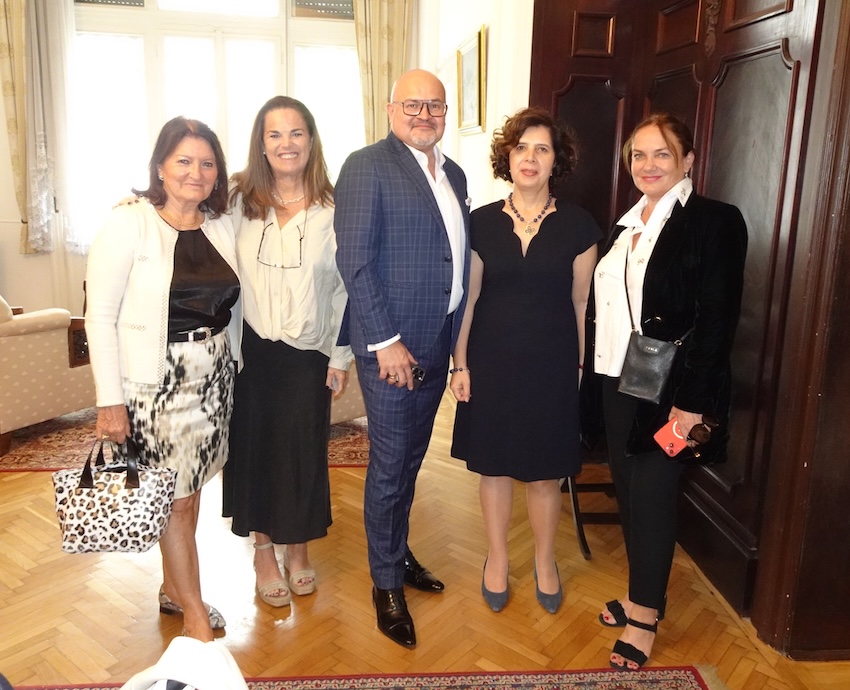
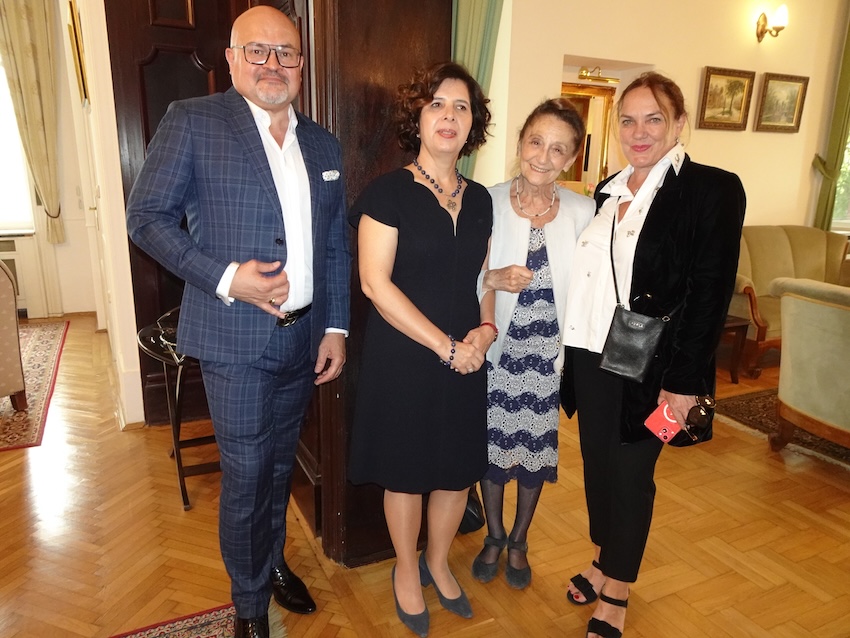
The ceremony opened with the national anthems of Chile and Hungary,
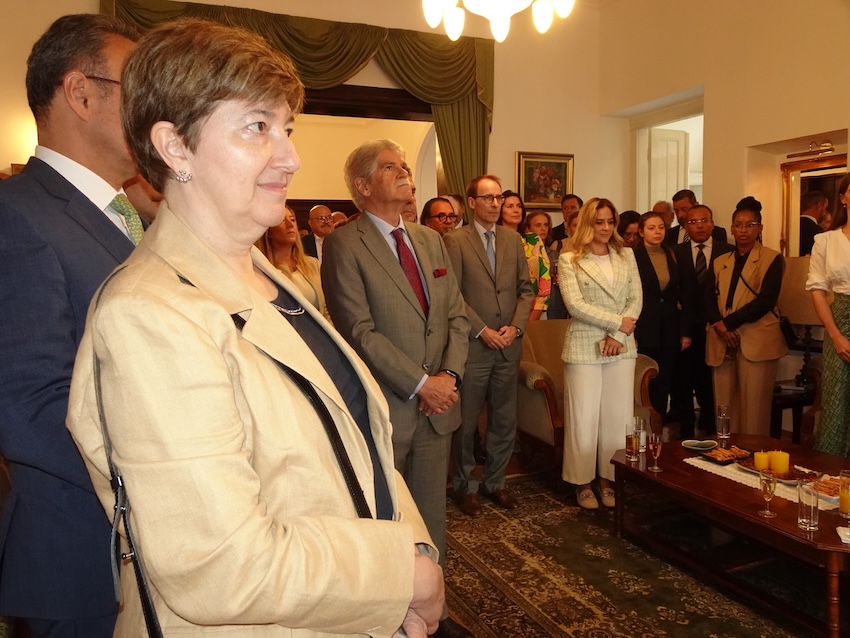
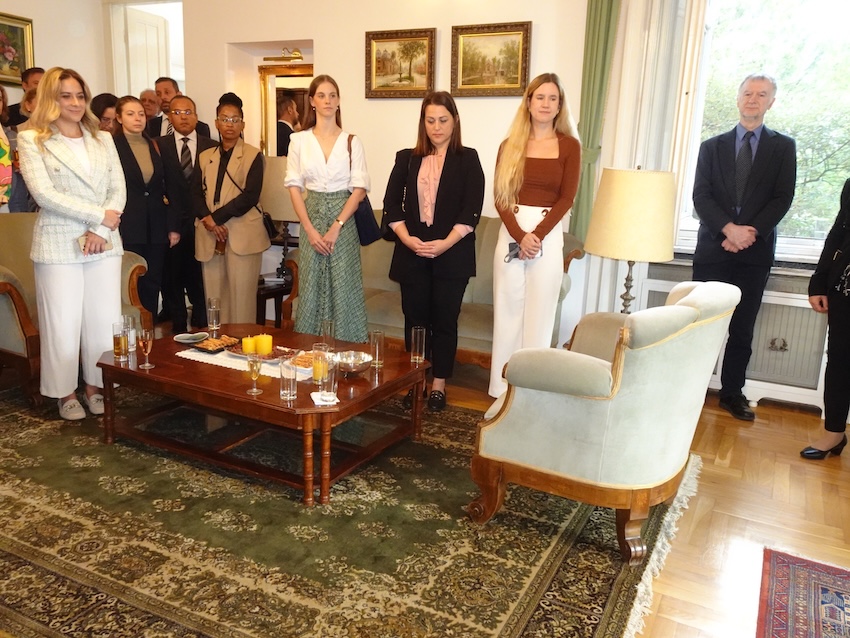
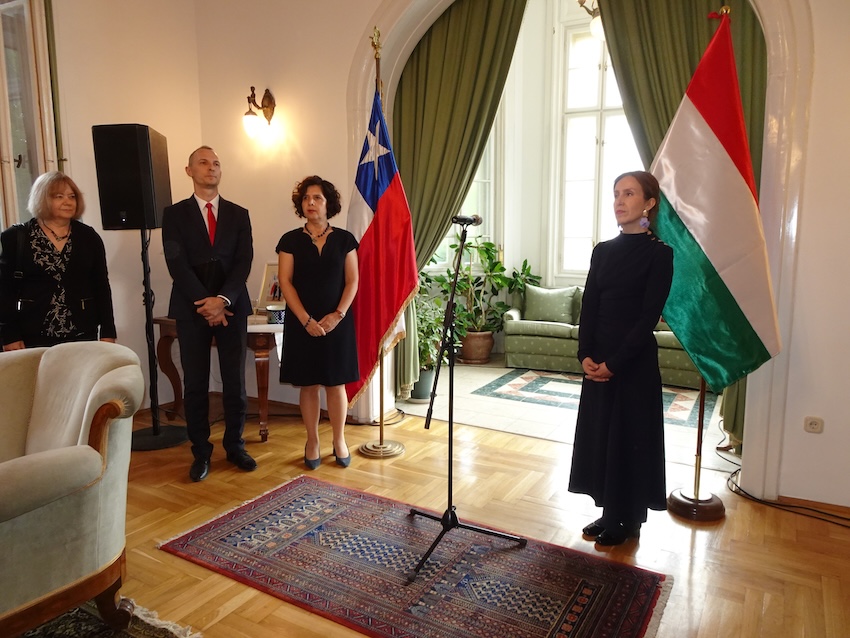
followed by welcoming remarks from Her Excellency Mrs. Camila Márquez Araujo, Ambassador of the Republic of Chile to Hungary:
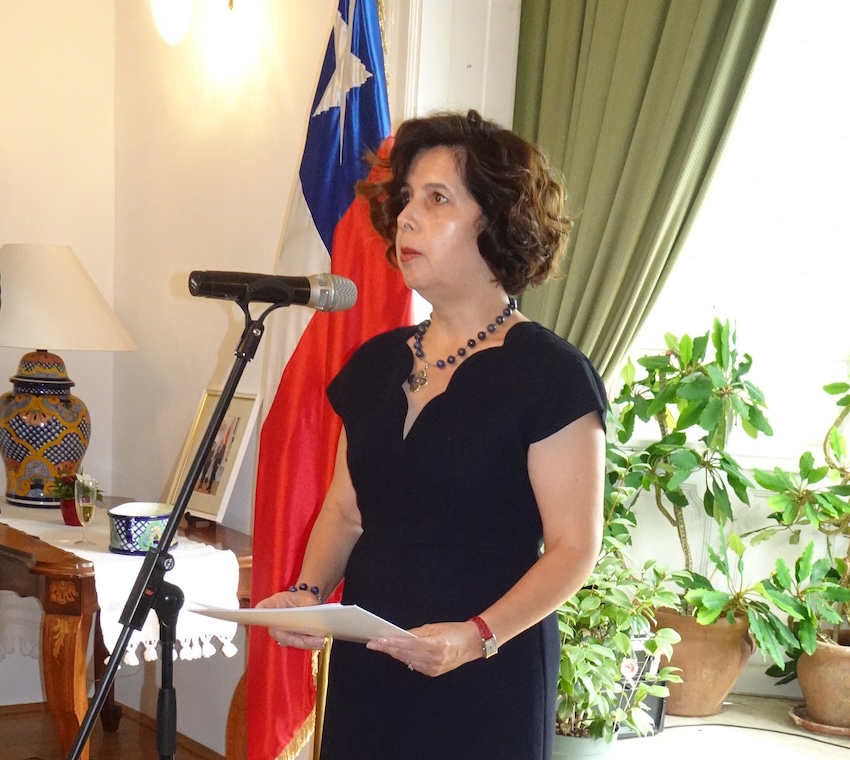
“Distinguished Authorities, Dear Ambassadors, Dear Friends, we gather here today to commemorate a significant occasion: the 215th anniversary of Chile’s independence. In this month of September – marked by the southern hemisphere’s spring, family reunions, popular festivities, and historical remembrance – we celebrate not just a date, but a legacy.”
The Ambassador recalled that the founding act of independence, driven by the fathers of the nation, “was not merely a break from colonial rule, but a profound affirmation of the value of freedom, human dignity, and the right of peoples to self-determination.” These ideals, she said, continue to inspire Chile’s path today.
Referring to Chile’s resilience, Ambassador Márquez Araujo remarked that it is a nation that “has known how to face adversity, and all kinds of earthquakes, including the painful rupture of 11 September 1973,” and has nonetheless managed to build a democracy that serves as “a space for dialogue, justice, and a vision for the future.”
She noted that Chile continues to move forward with legal and institutional transformations to strengthen justice and deepen democracy, while recognizing the role of the State, the private sector, and civil society in building the common good. Chile’s progress, she added, is driven by “connection with global challenges and shared hopes.”
Turning to the importance of defending democratic values, she emphasized: “Reality reminds us that freedoms and rights must never be taken for granted – they must be defended with strength and conviction by every generation.”
In this context, she reaffirmed Chile’s commitment to a responsible foreign policy grounded in international law, democracy, and human rights. Ambassador Márquez Araujo also outlined Chile’s active engagement with global issues, including ocean protection, climate action, sustainable development, plastic pollution, and artificial intelligence. Among these, she highlighted Chile’s proposal to host the BBNJ Agreement’s technical secretariat in Valparaíso, which focuses on high-seas biodiversity.
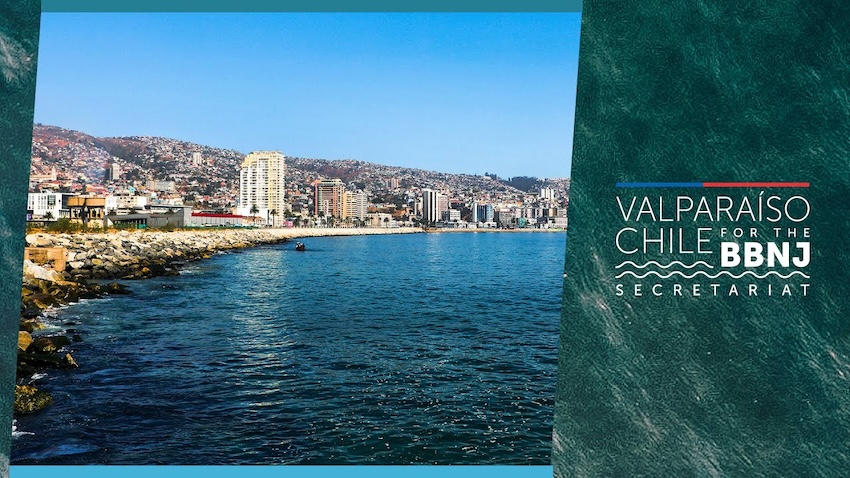
On the economic front, she mentioned Chile’s ongoing efforts to diversify trade partnerships, noting milestones such as the ratification of the Comprehensive Economic Partnership Agreement with the United Arab Emirates, and the negotiations with India and Southeast Asia.
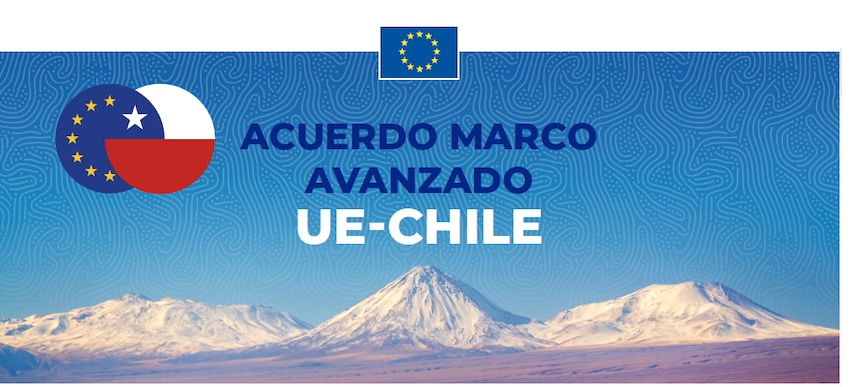
She also referred to the modernization of the Advanced Framework Agreement with the European Union, a key step toward strengthening Chile’s economic relations with Europe.
Furthermore, she underscored Chile’s active participation in regional cooperation addressing organised crime, migration, and natural disasters, and its continued work within the Pacific Alliance.
A central pillar of Chile’s diplomacy, she underlined, is Feminist Foreign Policy, which promotes gender equality as a cross-cutting principle. Facing the challenges of the 21st century, she said, Chile aspires to be “a constructive actor – one that seeks consensus, proposes solutions, and embraces its global responsibilities.”
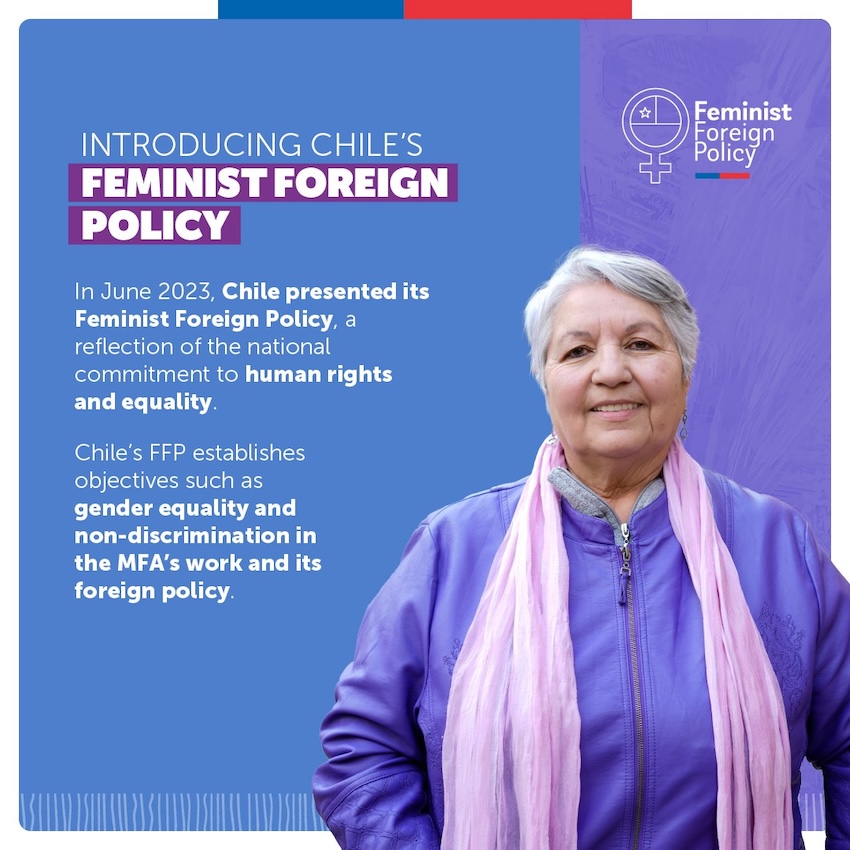
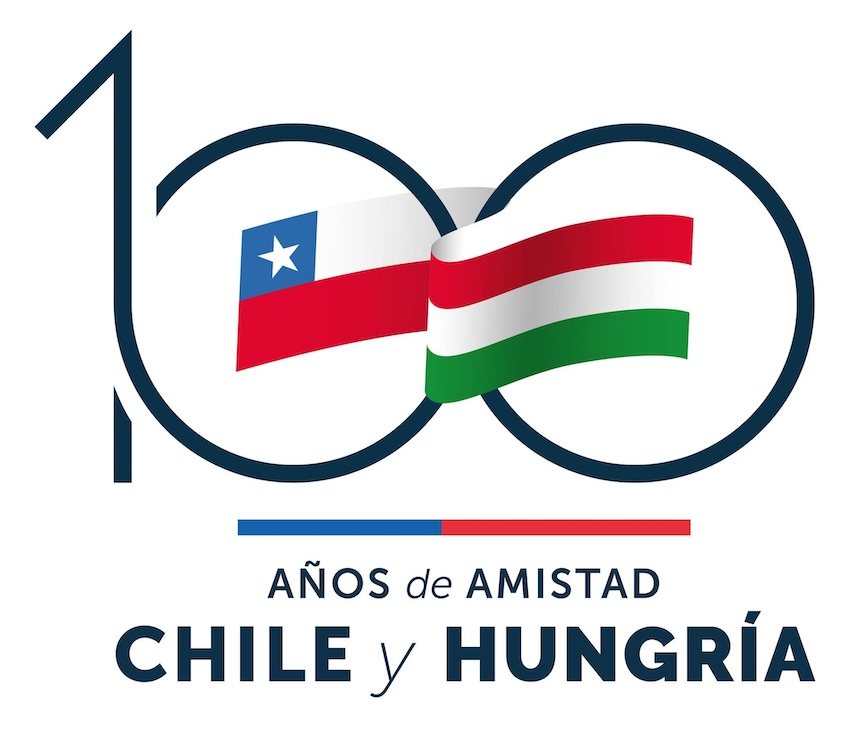
Ambassador Márquez Araujo also marked a special milestone – the 100th anniversary of diplomatic relations between Chile and Hungary – which she described as “a century of cooperation, dialogue, and mutual respect.” She emphasized the importance of collaboration in higher education, science, technology, environmental protection, and energy innovation, and gave special mention to the Stipendium Hungaricum Program as “a new opportunity to promote ties between our young professionals.”
Concluding her remarks, the Ambassador invited the guests to a toast: “Dear friends, as we look to the past with gratitude and to the future with hope, I invite you to raise your glasses to the friendship between Chile and Hungary, to our peoples, to our democracies, and to the values we share and defend. Cheers to Chile, Cheers to Hungary!”
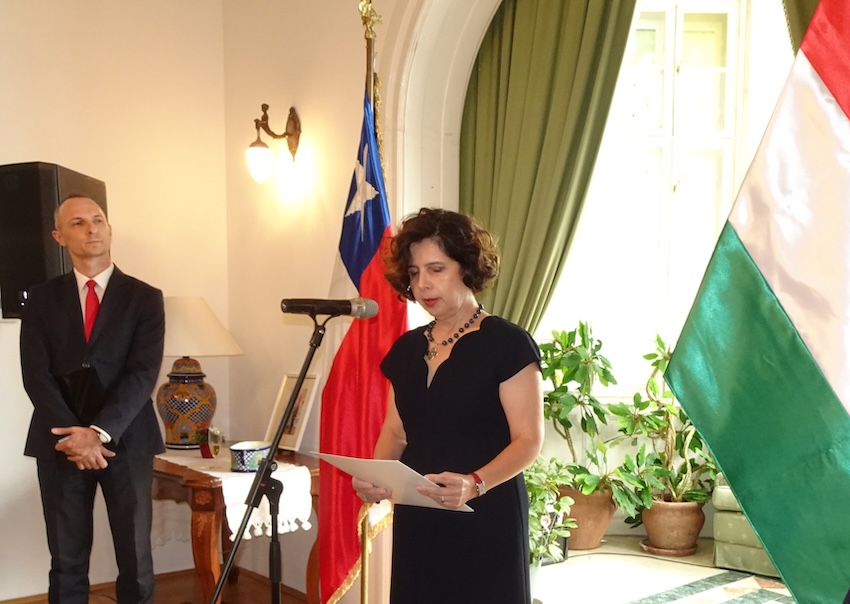
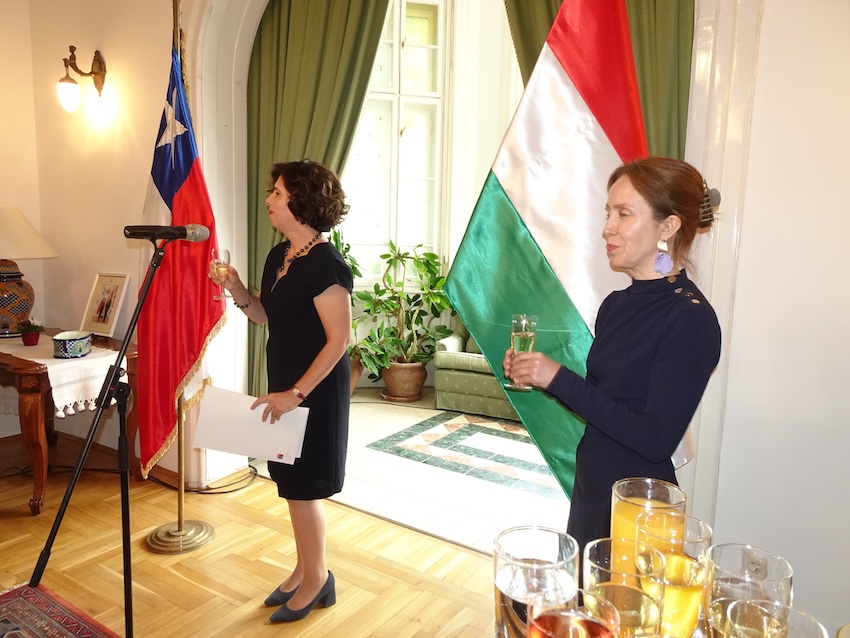
Address by the Guest of Honour
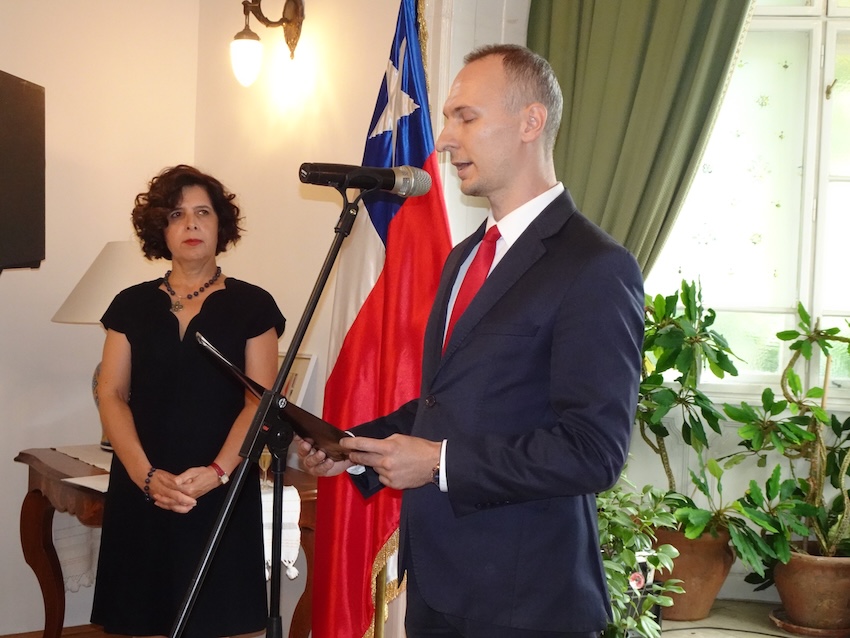
Representing the Hungarian Government, Mr. Péter Sutyinszki, from the Department for Latin America and the Caribbean at the Ministry of Foreign Affairs and Trade, delivered an address on Chile’s National Day.
He highlighted the multifaceted bilateral ties between Hungary and the Republic of Chile, noting that 2025 holds special significance as it marks the 100th anniversary of diplomatic relations between the two nations. Over the past century, their partnership has been built on mutual respect, shared principles, and steadily growing cooperation.
Mr. Sutyinszki observed that collaboration between Hungary and Chile spans numerous fields: “From cultural exchanges to scientific cooperation, from trade to multilateral dialogue, the relationship between our countries has been built on trust and mutual respect.”
He emphasized that Chile, like Hungary and the broader Central European region, has consistently upheld its values and principles in the modern era. Despite the geographical distance, the two countries are united by their commitment to democracy, trade liberalization, and open cooperation. “We are also united,” he said, “by our determination to overcome challenges through dialogue and collaboration – whether in economic development, education, science, or cultural initiatives.”
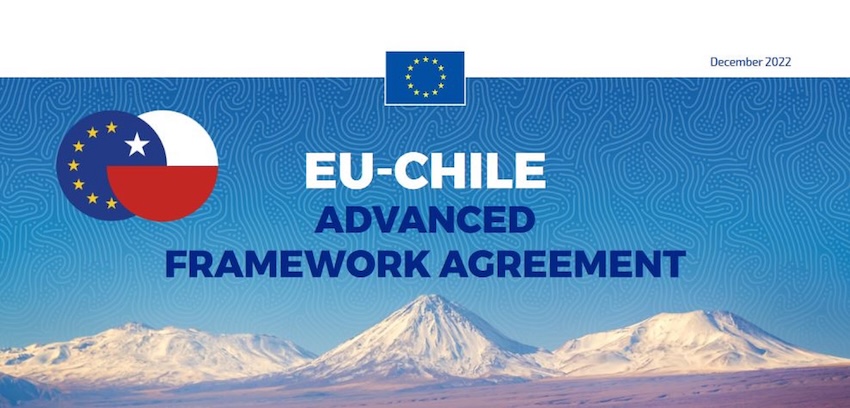
Mr. Sutyinszki welcomed the signing of the Advanced Framework Agreement between the European Union and the Republic of Chile on 1 February 2025, reaffirming that Hungary was among the first EU member states to ratify it.
He recalled that during the Hungarian Presidency of the Council of the European Union in July 2024, Mr. Péter Szijjártó, Minister of Foreign Affairs and Trade, paid his first official visit to Santiago de Chile.


He underscored that the new accord not only reflects shared values and principles but also serves as “an important instrument that advances our mutual interests by promoting openness in trade, breaking down barriers, and encouraging investment.” Trade and investment opportunities continue to expand, benefiting both nations through dynamic cooperation in sectors such as agriculture, technology, and innovation – fields that, as he noted, “resonate strongly with Hungary and form an enduring bond between our nations.”
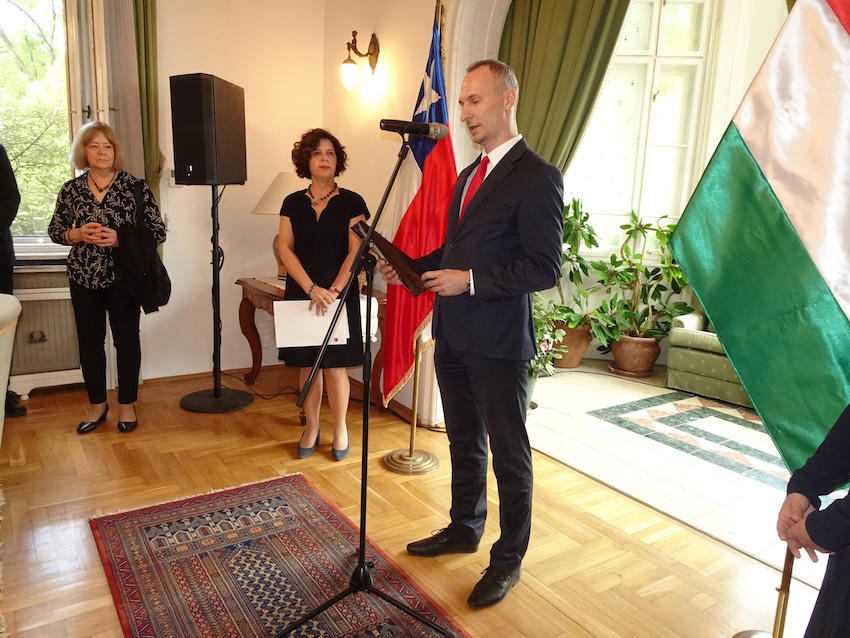
Beyond economic relations, educational and cultural exchanges nurture mutual understanding and create lasting people-to-people connections – the true foundation of enduring friendship. Mr. Sutyinszki reflected on historical human ties, noting that “in the past, many compatriots from our countries found a new home and left their mark on each other’s land.” That legacy, he added, lives on today through academic cooperation. Since Chile’s accession to the Stipendium Hungaricum Program in 2020, more than 50 Chilean students have enrolled in Hungarian universities, enriching bilateral understanding through education and exchange.
Concluding his remarks, Mr. Sutyinszki addressed the Ambassador and attendees, saying: “Excellency, allow me to extend my sincerest congratulations and best wishes. May Chile continue to flourish in peace and prosperity and may the friendship and cooperation between our nations deepen further, reflecting the shared values, enduring bonds, and the partnership that has guided us for the past 100 years. Viva Chile! Fiestas Patrias!”

Following the formal speeches, the guests enjoyed a reception featuring culinary specialties from Chile and Latin America, showcasing a selection of traditional dishes and flavours from richness and diversity of the region’s gastronomy. The evening provided an excellent opportunity for informal exchanges and conversations in a cordial and festive atmosphere.

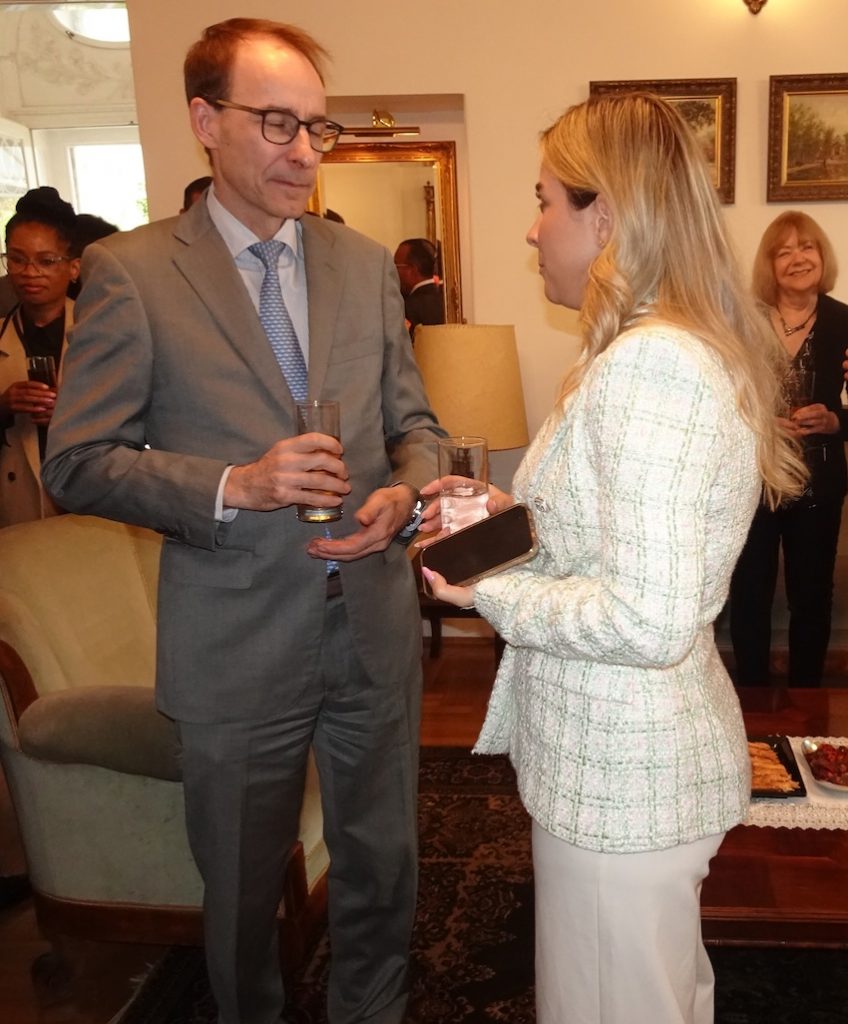
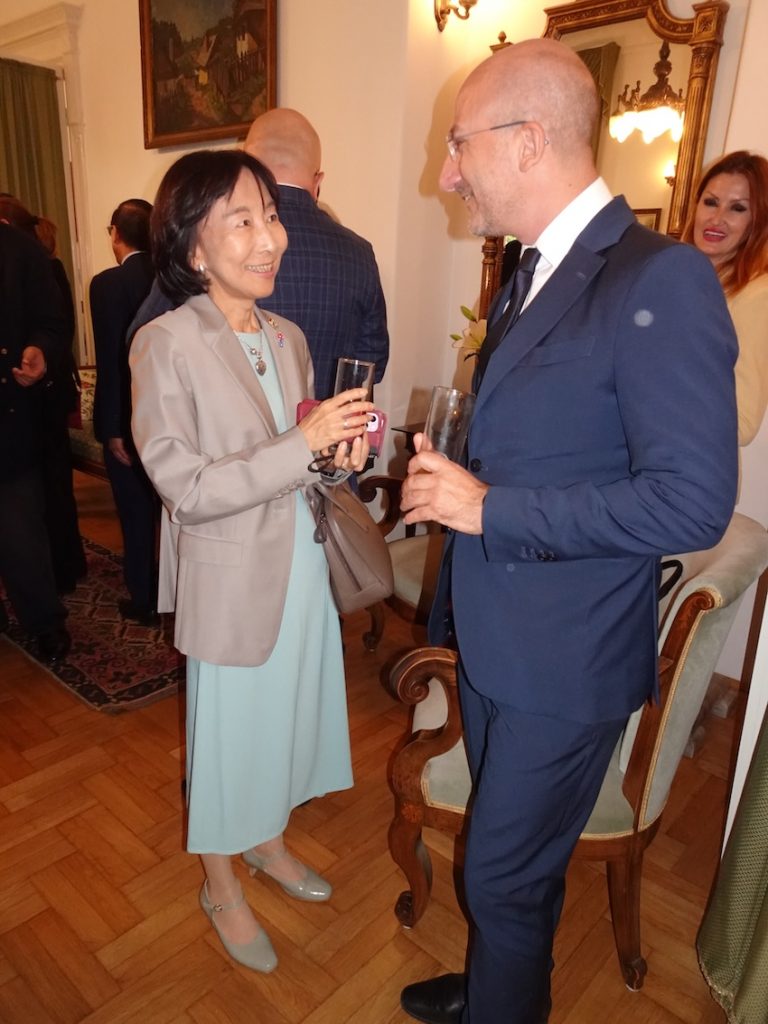
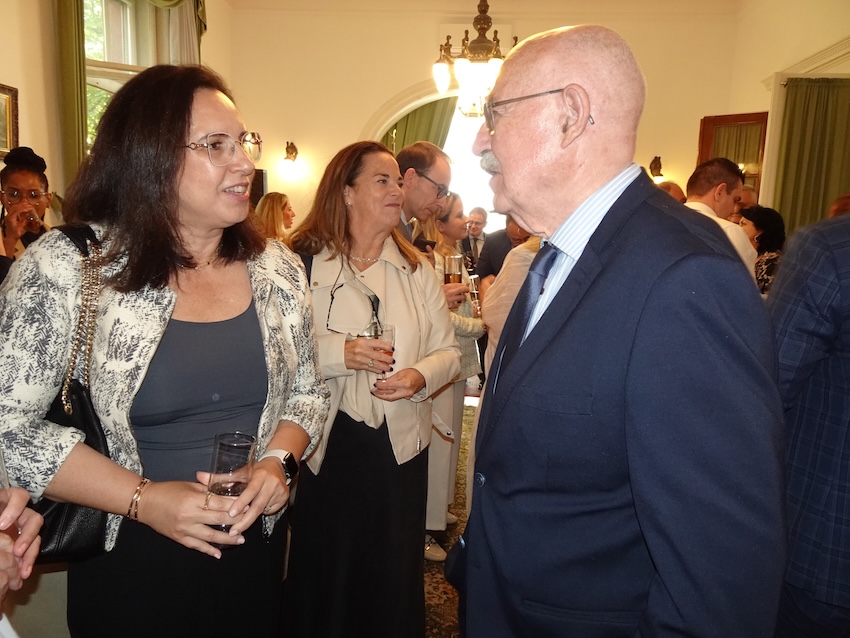
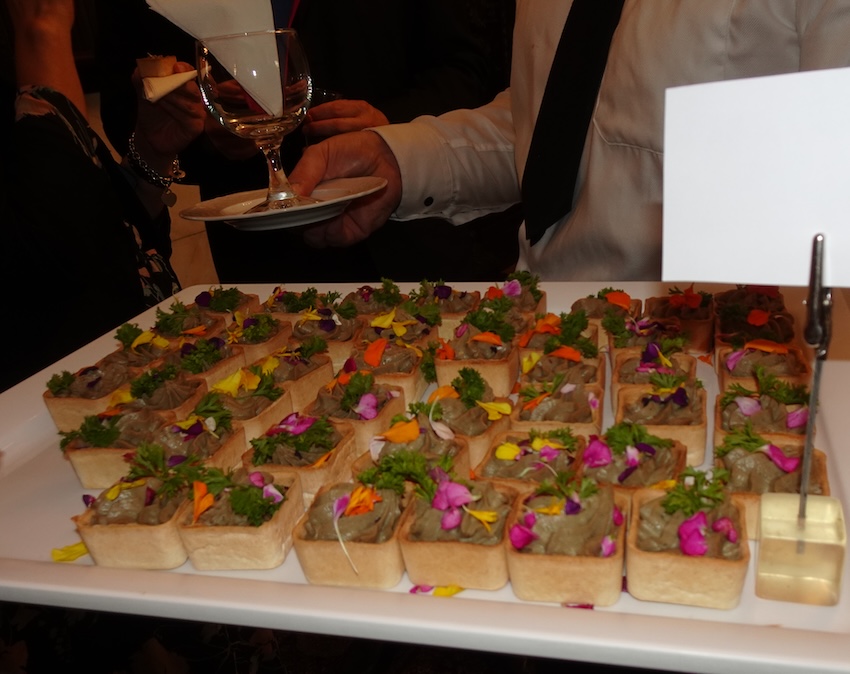
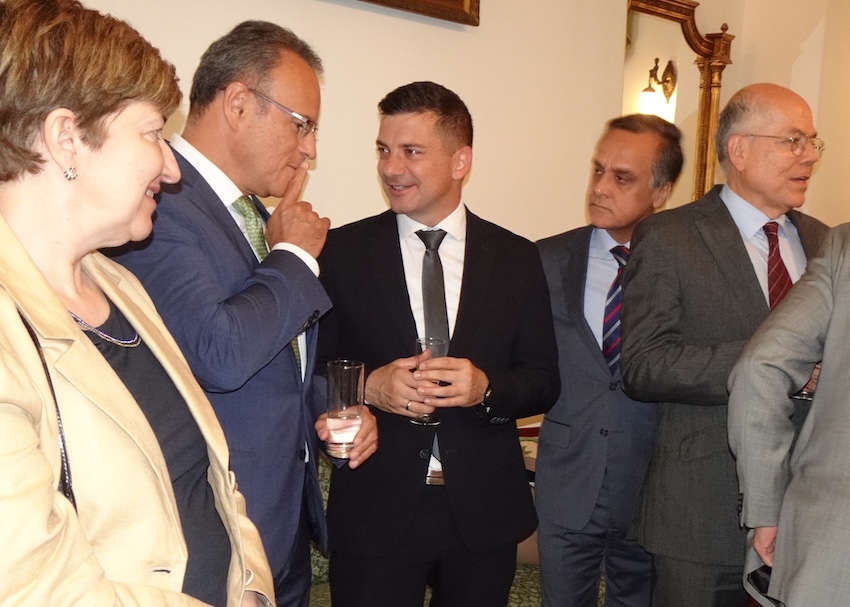
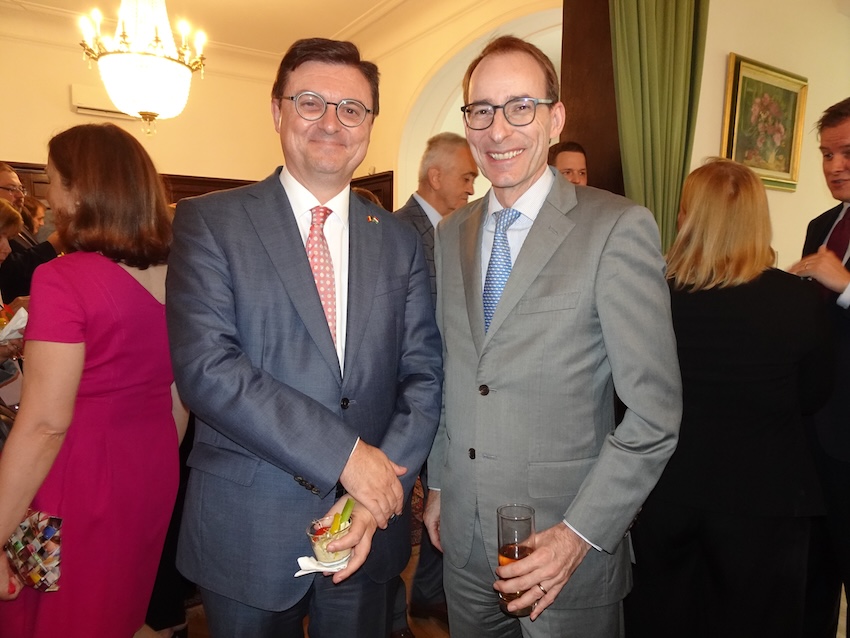
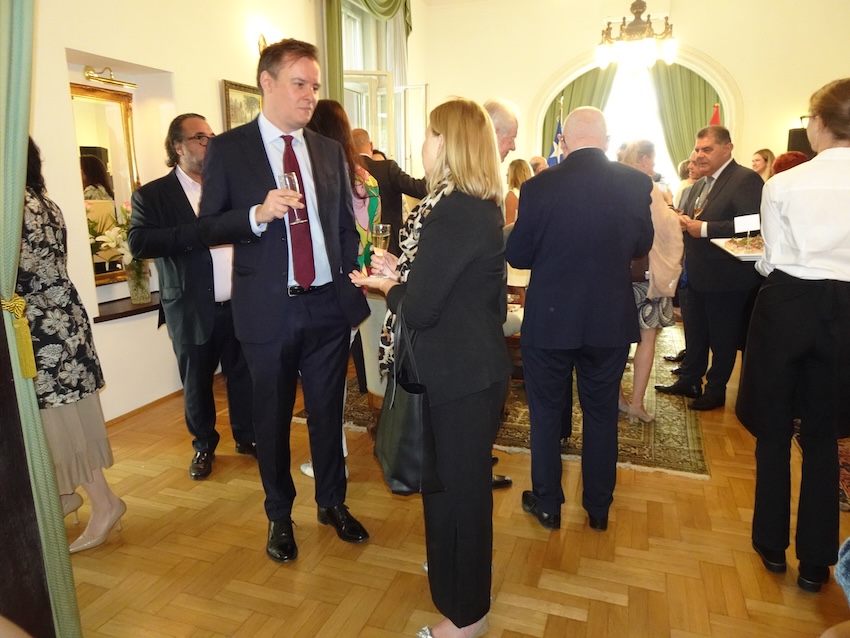
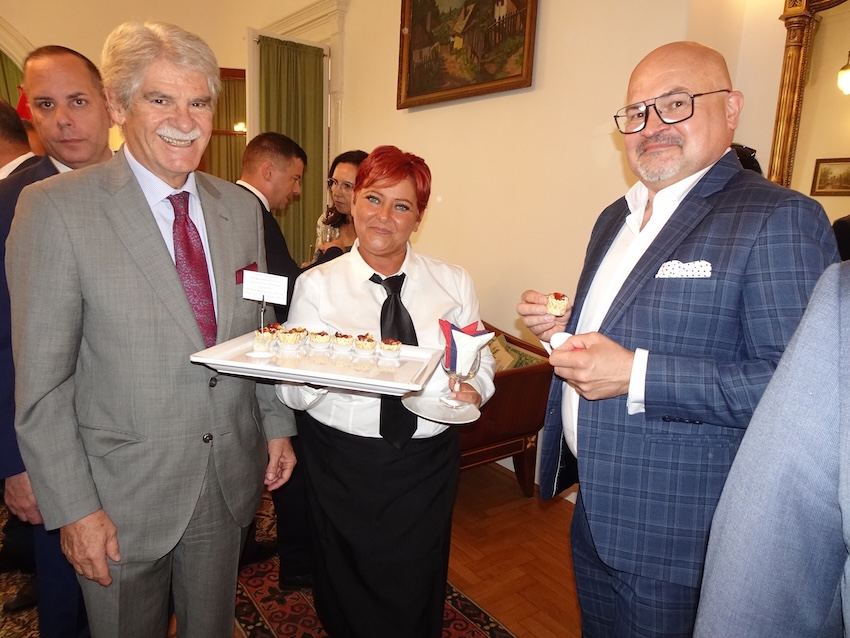
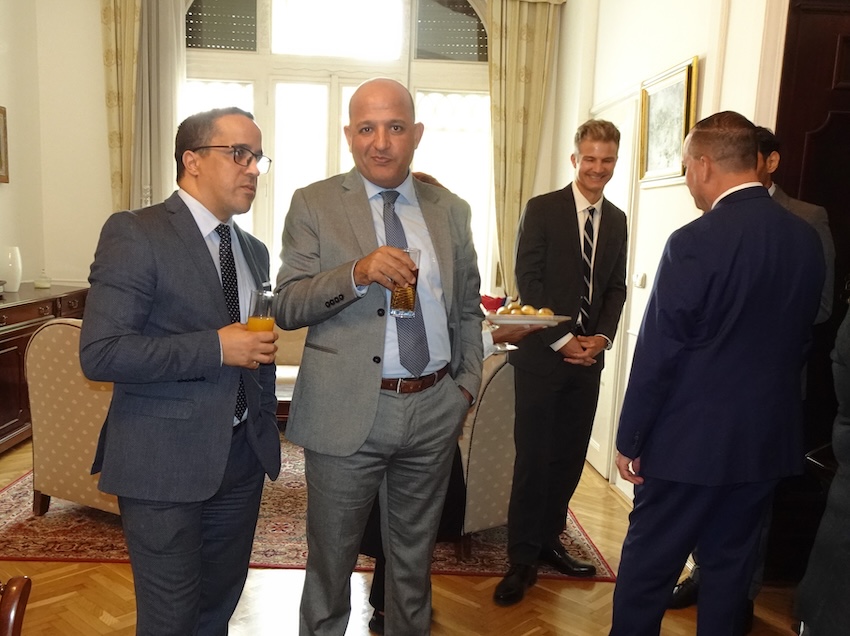
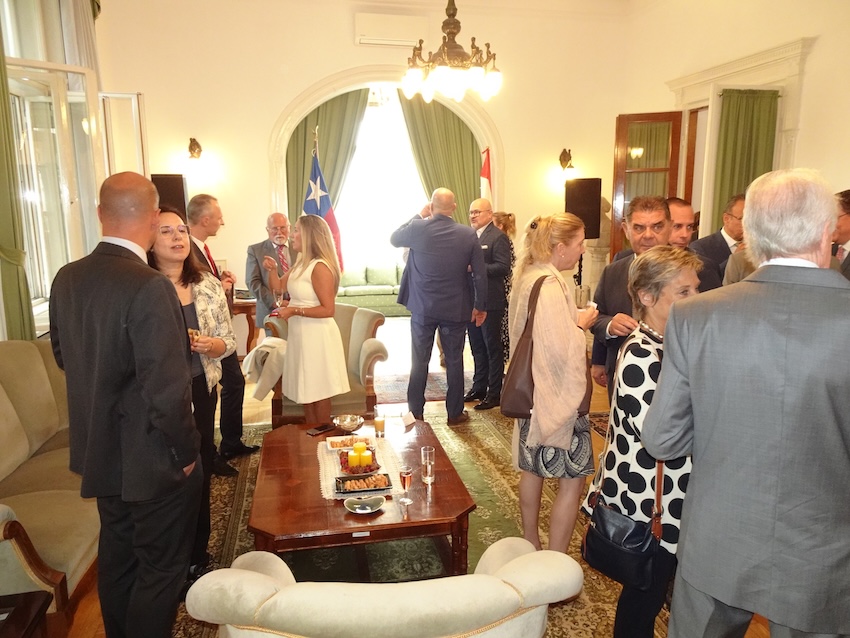
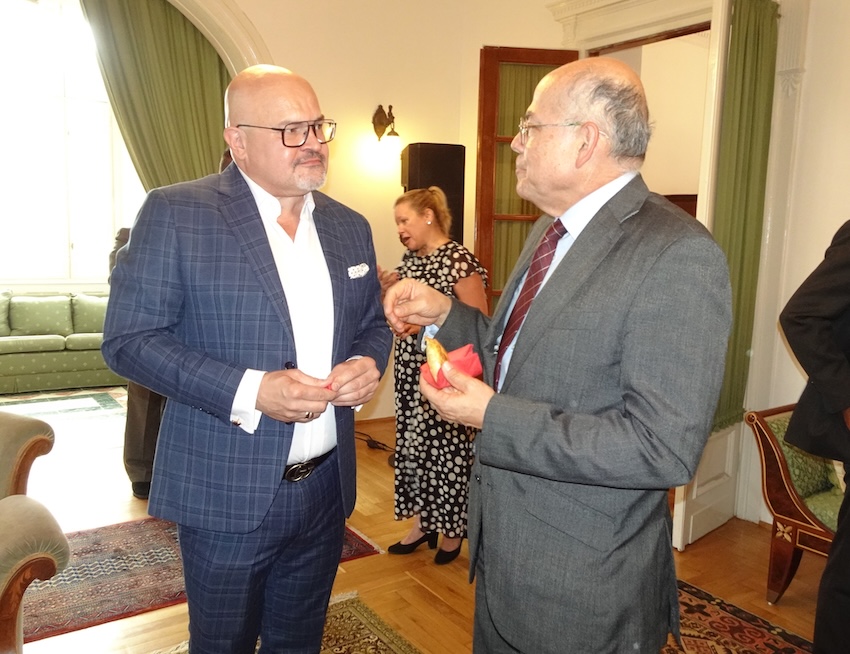
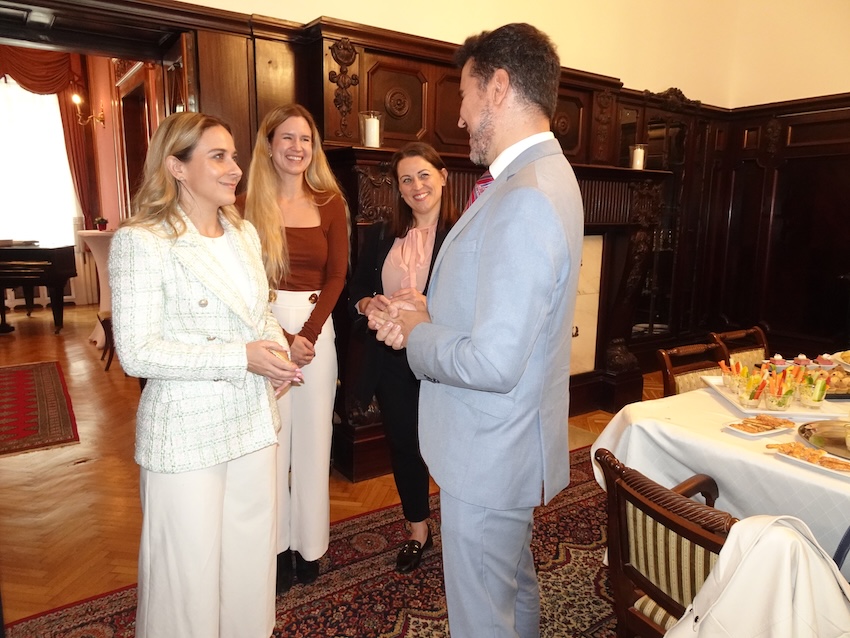
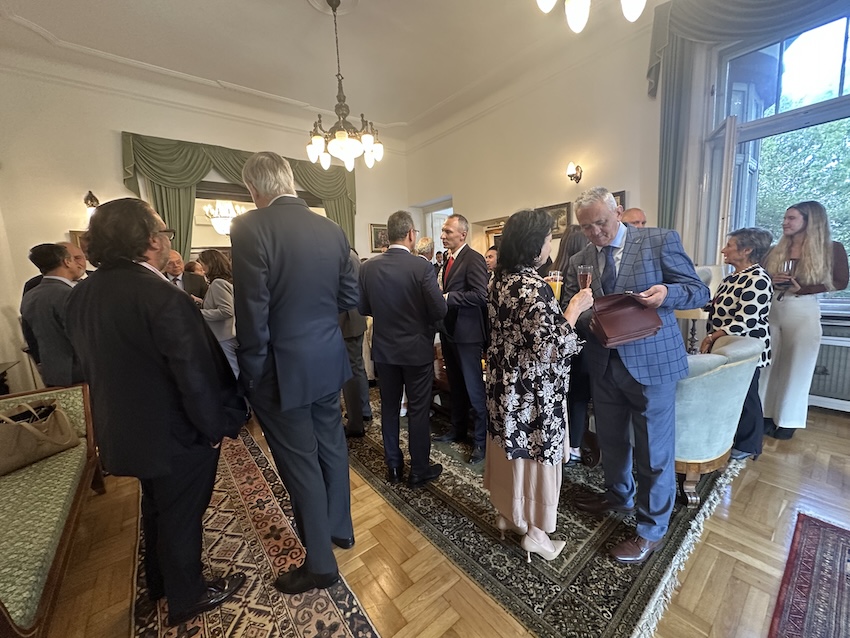
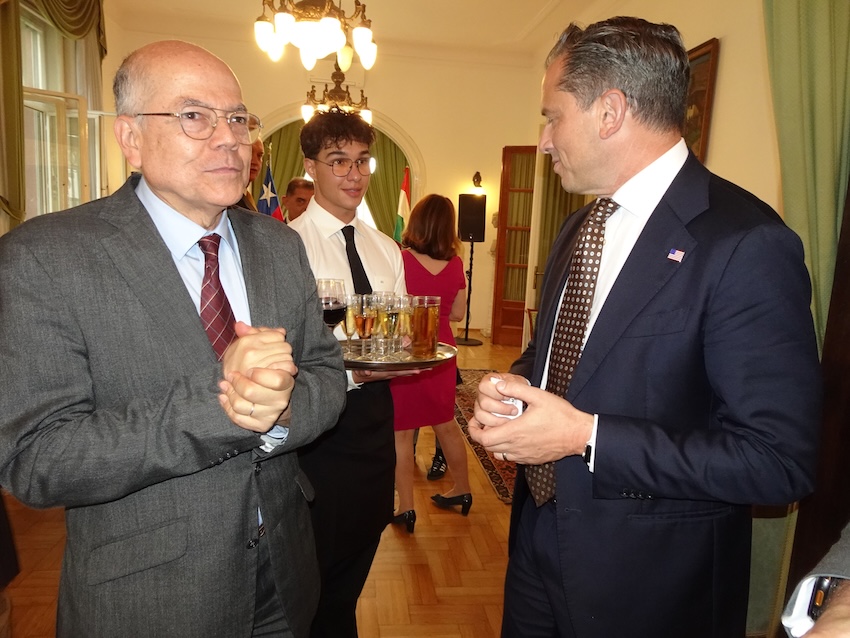
Chile Re-Elected to the United Nations Human Rights Council for 2026–2028
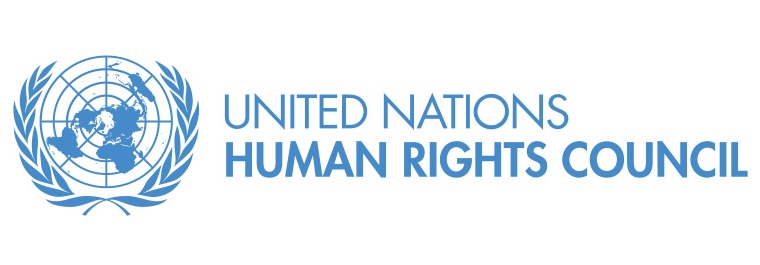
“All human beings are born free and equal in dignity and rights.”
This timeless declaration remains one of the most inspiring statements in international law. It forms the cornerstone of the Universal Declaration of Human Rights, adopted on 10 December 1948 – marking its 77th anniversary in 2025.
On 14 October 2025, during the 80th UN General Assembly session, 14 countries were elected to the Human Rights Council (HRC) for the 2026–2028 term: Angola, Chile, Ecuador, Egypt, Estonia, India, Iraq, Italy, Mauritius, Pakistan, Slovenia, South Africa, the United Kingdom, and Viet Nam.
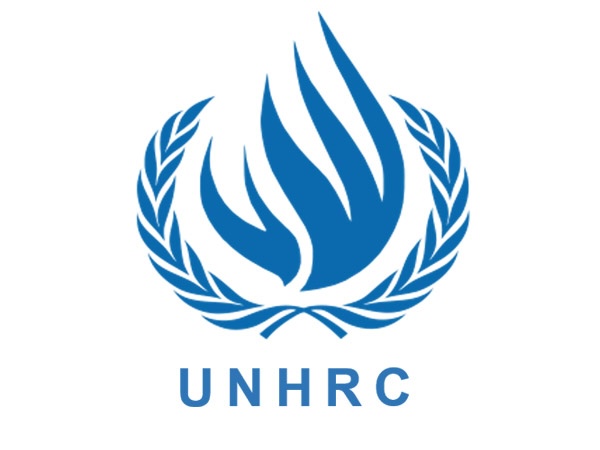
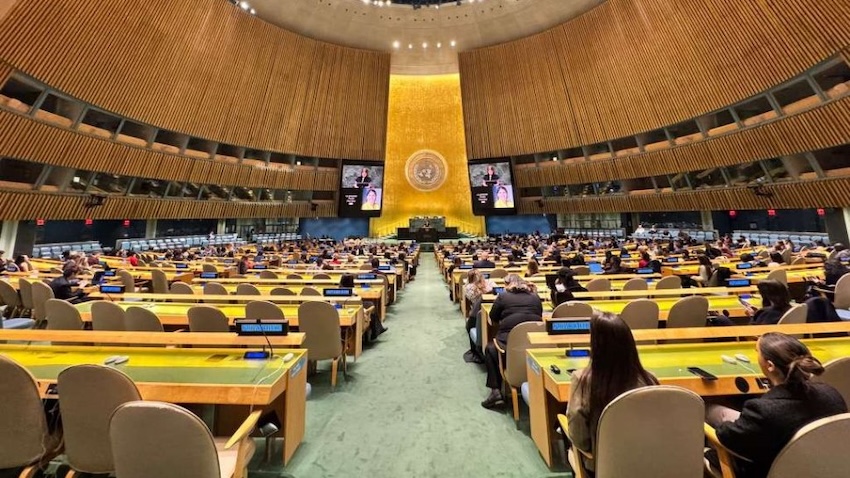
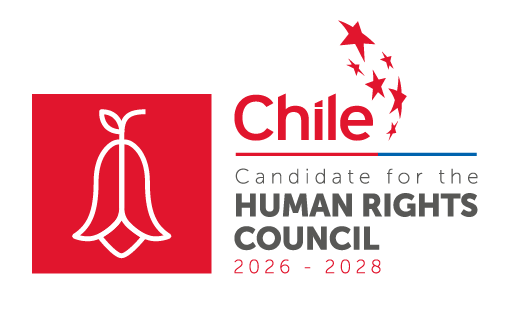
The Republic of Chile earned special recognition for being re-elected for a second consecutive term, reflecting global confidence in its dedication to human rights, democracy, and multilateralism. Having already served four terms (including 2023–2025), Chile is noted for its leadership in advancing transitional justice, gender equality, LGBTIQA+ inclusion, environmental protection, respect for democratic values, and the promotion of economic, social, and cultural rights.
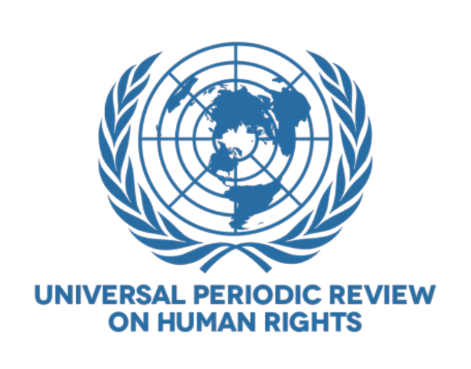
With its new mandate, Chile aims to strengthen the Universal Periodic Review, enhance cooperation with treaty bodies, and continue promoting equality and non-discrimination worldwide, reaffirming its commitment to human dignity and international cooperation.
Sources: Embassy of Chile in Budapest, UNGA, UN HRC
Photos from the Embassy of Chile in Budapest, Diplomatic Press Agency





